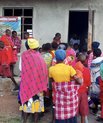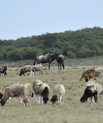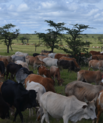maasaimarascience
Maasai Mara Science
& Development Initiative


An international partnership with one goal
Maasai Mara Science and Development Initiative is a partnership between University of Nairobi, Aarhus University (Denmark), Kenya Wildlife Trust, the Mararianta community and the Karen Blixen Camp Trust.
We want to contribute to conserving the Maasai Mara ecosystem, its rich wildlife and culture through interdisciplinary research and development initiatives.
Since 2014 we have started more than 20 research projects, providing important data about the Greater Mara Ecosystem.
Check out our publications. Many of them are Open Access, free for all to read.
We are a member of the One Mara Research Hub

Our goal
We want to contribute to conserving the Maasai Mara ecosystem, its rich wildlife and culture through interdisciplinary research and development initiatives.









